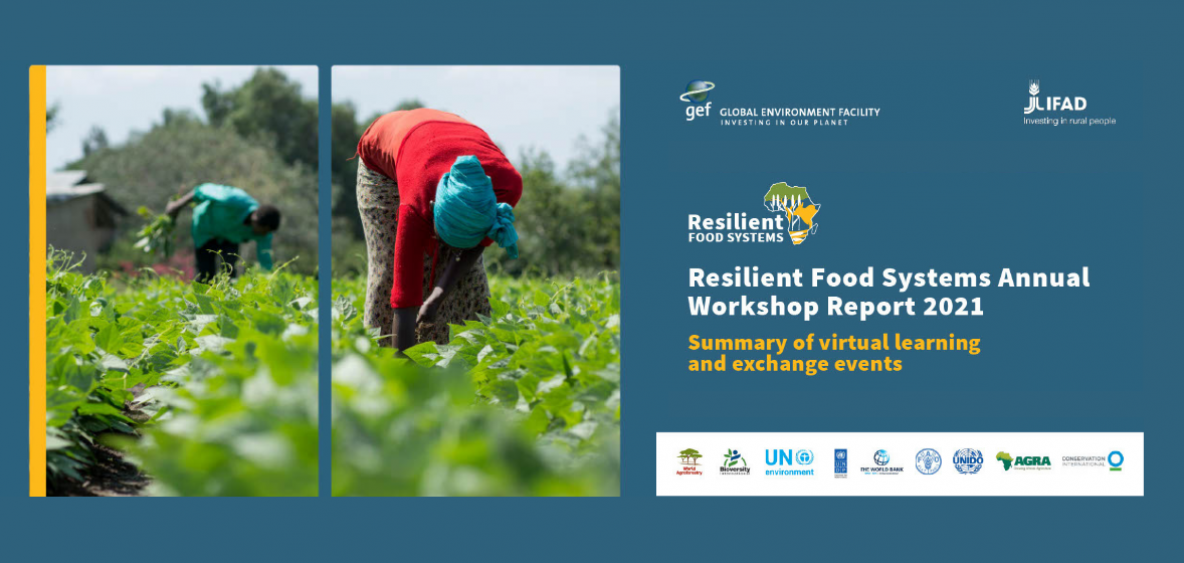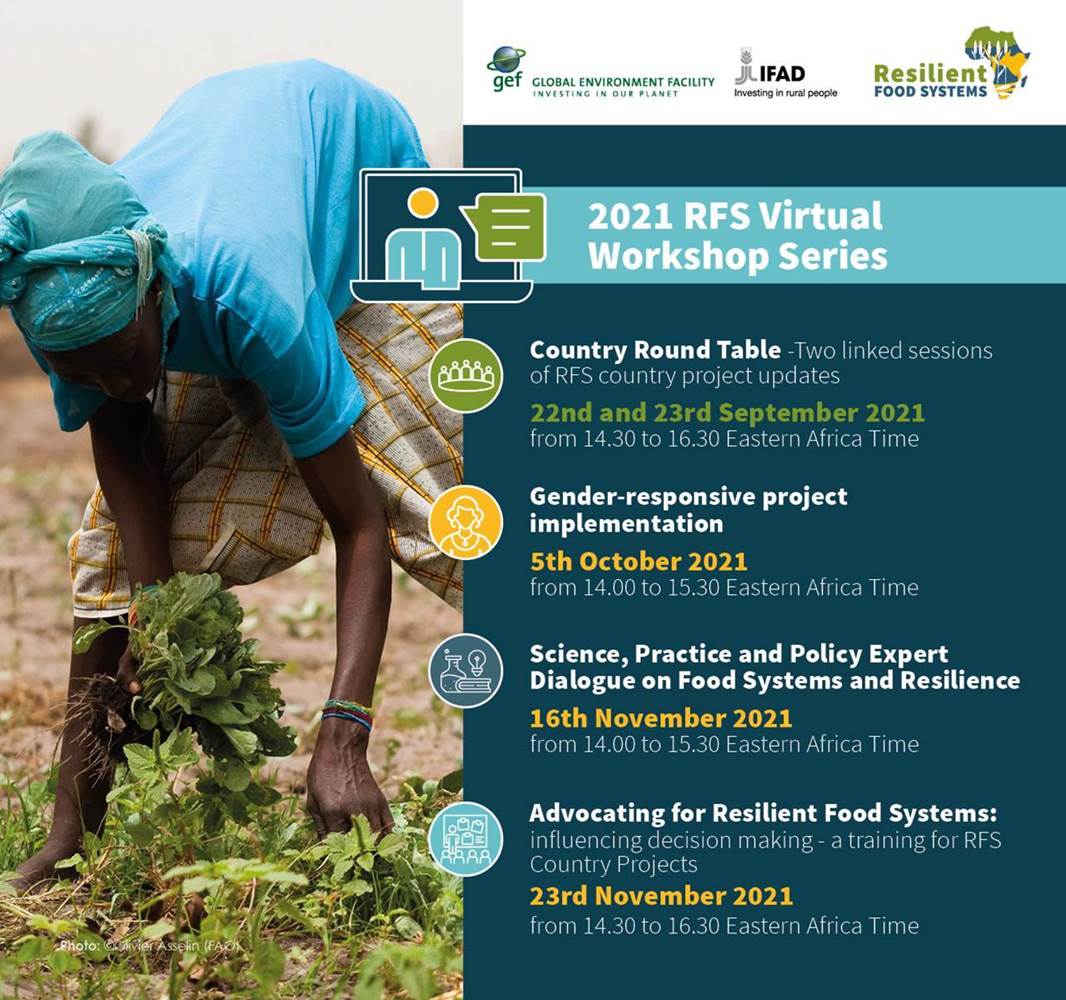
The Resilient Food Systems (RFS) programme proved its adaptability in 2021 by holding the fourth Annual Workshop virtually over the second half of the year.
As one of three Integrated Approach Pilots funded by the Global Environment Facility (GEF), RFS is committed to facilitating cross-country learning among its 12 country projects from across sub-Saharan Africa. But with continued COVID-19 measures restricting movement, the Annual Workshop was unable to be held in person and was moved to a virtual format, unlike in previous years. The result was a resounding success, highlighting the commitment of programme actors toward facilitating sustainable and resilient food systems transformation.
Bringing together country project leaders, partners at the Regional Hub, governmental agencies and other key stakeholders, the 2021 Virtual Workshop Series comprised six sessions with the following key foci:
Continuous learning is a key tenet of the RFS programme, and while each session achieved different goals, this mission remained the same across the board.
But while the Regional Hub provides a centralized supporting body, the twelve countries that make up the programme are situated in unique contexts, with different sets of needs, resources and environments. This makes monitoring and evaluation (M&E) imperative for mainstreaming cross-cutting themes into different contexts.
With RFS transitioning into its final programme stages, the lessons learned thus far are more important than ever to inform activities that pack the biggest punch possible. The RFS M&E plan was updated last year to align with the new GEF-7 results architecture, and the first session of the 2021 Virtual Workshop Series focused on helping country projects adapt to the new framework.
Around the same time as the first workshop, a mid-term review (MTR) of the Regional Hub’s lessons and recommendations was conducted, and the results were presented as a major component of the final workshop session in December. The session also involved experience and progress sharing from project leaders. Acting Director of IFAD’s Environment, Climate, Gender and Social Inclusion Division, Tom Anyonge’s opening remarks underscored the importance of the MTR in informing the next steps of RFS in 2022.
While the first and last Workshop sessions focused on programme operations and strategic planning, other sessions facilitated dialogue in focused sessions relating to cross-cutting issues in food systems transformation, and country projects shared their experiences and lessons learnt at the 2-day-long Country Round Table.
The 5th October session on gender-responsive project implementation was based on the Guidance Note that provides the framework for integrating gender into RFS project activities. The session included presentations from Nigeria and eSwatini project leaders showcasing the best practices and widely successful gender activities they have undertaken. A new learning note (also prepared by ICRAF) helps lay out what this entails.
RFS is committed to knowledge-sharing so that successful approaches can be applied in other contexts and inform future actions across the programme. A new report produced by the PCU contains further details on each session and is available in English and French. An added plus, recordings of all sessions are available on our YouTube channel!
With easing COVID restrictions, it’s looking like RFS actors could meet face to face for the 2022 Workshop, so long as we can keep our people as safe as possible. In any case, the success of the 2021 Virtual Workshop Series has instilled great confidence in the ability for RFS to keep the conversation going on building a resilient food future from all corners of the Globe.

Subscribe to our monthly newsletter to receive updates on stories directly from the field across all our projects, upcoming events, new resources, and more.